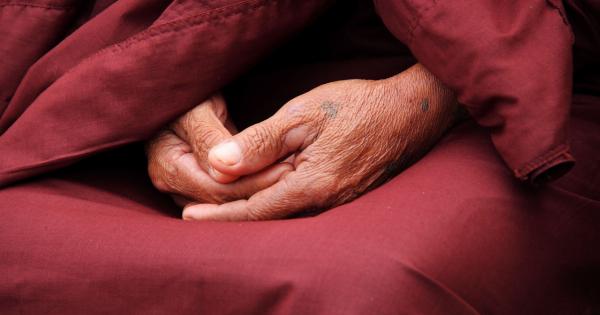Have you ever noticed that your little finger is longer than your ring finger? While it may seem like a trivial observation, the length of your fingers can actually hold some intriguing insights into your biology and even your personality.
This peculiar phenomenon has caught the attention of researchers and scientists who have unraveled its scientific significance. In this article, we will delve into the meaning behind having a longer little finger and explore the possible implications it may have on your life.
The Science Behind Finger Length
To understand the significance of having a longer little finger, we first need to explore the science of finger length ratios.
Human fingers are typically categorized into three main sections: the thumb, the index finger, and the remaining three fingers, which consist of the middle, ring, and little finger. The relative length of these fingers, particularly the index and ring fingers, can vary significantly from person to person.
The Digit Ratio
The ratio between the length of the index finger and the ring finger, commonly known as the digit ratio, has been the subject of numerous studies.
Research suggests that this ratio is determined by the exposure to sex hormones, particularly testosterone, during prenatal development.
Personality Traits and Finger Length
Several studies have investigated the possible correlation between finger length ratios and personality traits.
While the evidence is still inconclusive, some researchers believe that certain characteristics may be associated with specific finger length patterns. For instance, individuals with a longer ring finger than their index finger are said to display traits such as assertiveness, confidence, and a predisposition towards athletic abilities.
The Significance of a Longer Little Finger
Now, what if your little finger happens to be longer than your ring finger? While less researched compared to the index-to-ring finger ratio, this particular finger length difference has captured the curiosity of both scientists and those fascinated by palmistry. Although it lacks a substantial body of scientific evidence, several theories exist regarding the possible implications of this characteristic.
Genetic Influences
One theory suggests that a longer little finger may be influenced by genetic factors. Research has shown that certain genes are responsible for controlling the growth and development of different body parts, including fingers.
Hence, it is conceivable that genetic variations could lead to specific finger length ratios, such as having a longer little finger.
Creative and Artistic Abilities
Another theory speculates that individuals with a longer little finger possess heightened creative and artistic abilities.
The basis for this hypothesis lies in the idea that different finger lengths are associated with distinct brain development, which may influence various cognitive abilities. However, more research is required to validate this claim.
Relationship with Communication
Some palmistry enthusiasts suggest that a longer little finger may indicate exceptional communication skills.
They believe that those with this finger length ratio possess an eloquence and persuasiveness that allows them to excel in fields such as sales, negotiation, or public speaking. However, it is important to note that palmistry is not considered a scientifically verified practice.
Other Factors to Consider
While finger length ratios can be intriguing, it is important to remember that they are just one small aspect of our complex biology.
Many other factors, such as genetics, upbringing, and personal experiences, contribute to shaping an individual’s personality and abilities. Therefore, it would be misguided to rely solely on finger length as a determinant of a person’s characteristics.
Conclusion
The length of your little finger relative to your ring finger can be an interesting observation that sparks curiosity about its potential significance.
While research into the subject is ongoing, it is vital to approach the topic with a critical mindset and avoid drawing definitive conclusions based solely on the length of your fingers. Instead, embrace the uniqueness of your biology and appreciate the multifaceted nature of human beings.




























